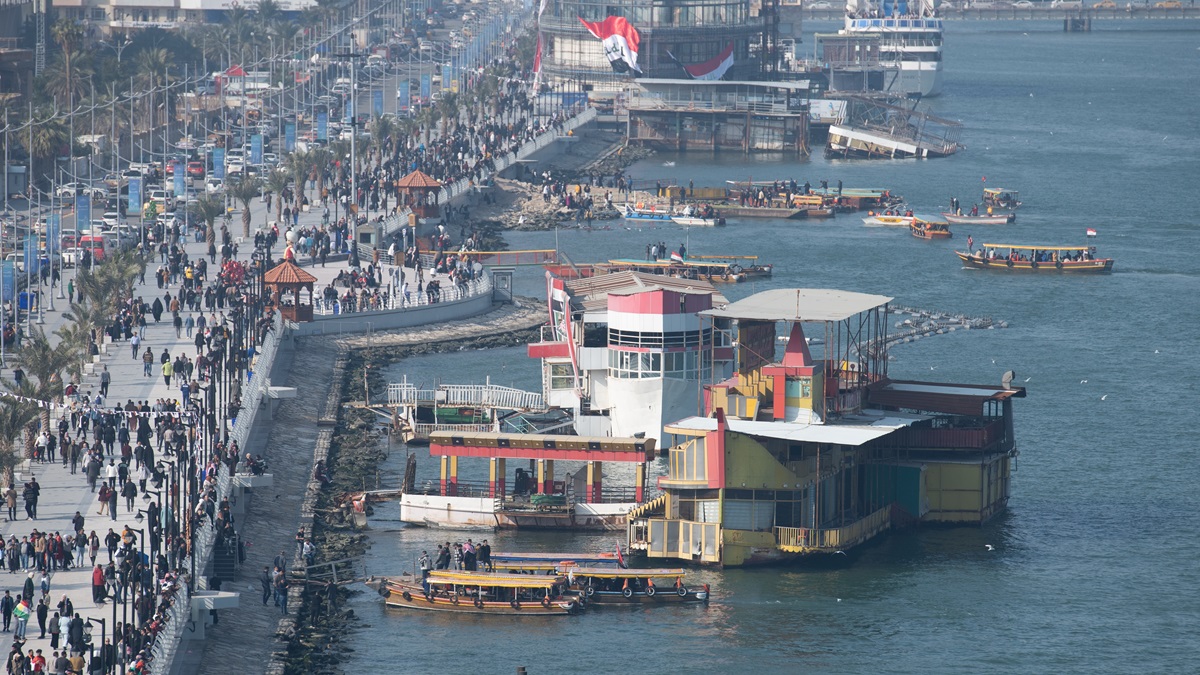Backed by UN Trade and Development, customs automation helps improve compliance and ease trade in the country, benefitting businesses, the government and people.

© Shutterstock/ziyad.matti | The Iraqi port of Basra situated on the Persian Gulf.
As war-scarred Iraq continues efforts to revive its economy, there’s newfound vigour in trade.
In October 2023, the country launched ASYCUDAWorld – a premier customs automation software supported by UN Trade and Development (UNCTAD) to digitalize customs clearance processes, reduce fraud risks and ease cross-border commerce.
The software, in compliance with international standards, aims to replace Iraq’s manual, paper-based customs clearance processes, enabling traders to complete all necessary paperwork online for time and cost savings.
Baghdad International Airport, where ASYCUDAWorld debuted in Iraq, saw customs revenue grow by more than 215% between January and May 2024, compared to the same period a year earlier.
Between January and March, import transactions at the airport were up 120% from the first quarter of 2023, reaching their highest levels in a decade.
The business community also responded effectively to comply with new procedures and regulations. Since October 2023, over 2,800 declarants have submitted around 65,600 declarations to customs through ASYCUDAWorld.
Currently, the software is up and running in Iraq’s nine largest customs offices which combined account for 81% of the nation’s international trade by volume.
These include customs operations located on the borders with neighbouring Kuwait, Jordan and Saudi Arabia, as well as at the port of Umm Qasr which leads to the Persian Gulf.
Taif Sami, Iraq’s finance minister, praised ASYCUDAWorld for helping her country "achieve financial discipline, reduce errors, enhance the efficiency of government resources and provide accurate information.”
Long-term partnership with topline political backing
The agreement to roll out ASYCUDAWorld was envisaged in May 2021, as part of Iraq’s partnership with the Automated System for Customs Data (ASYCUDA) programme – the largest technical cooperation project run by UN Trade and Development across over 100 countries.
The collaboration enjoys the full support and solid commitment of the highest level of the Iraqi government, including the Office of the Prime Minister, the Ministry of Finance and the Director-General of Customs.
“The active involvement of these and other government departments, including the General Commission for Customs, has been critical in ensuring the project’s success to date,” says Shamika N. Sirimanne, director of technology and logistics at UN Trade and Development.
“ASYCUDA’s work in Iraq is ongoing but, even at this stage, we are already seeing the volumes traded increase and government revenues boosted,” Ms Sirimanne says.
Director General Hassan Hammoud Al-Oukaily of Iraq Customs adds: "The [ASYCUDA] system unifies the customs procedures at all crossings and ports and standardizes the collection of fees. It provides accurate information to policymakers about imports and exports, control over currency movements, and the exchange of dollars between Iraq and other nations."
National stakeholders empowered to take the lead
The ASYCUDA work brings together in Iraq six staff of UN Trade and Development along with a national project team, comprising IT and customs experts.
Together, the operation customized and installed the ASYCUDAWorld prototype and tailored it to adhere to Iraqi laws and regulations.
Additionally, ASYCUDA staff trained the national team to use and independently maintain the system, including sessions held in Baghdad and a field visit to customs offices in Jordan to learn from their experiences.
Afterwards, the Iraqi national team in turn trained the Iraq-based ASYCUDAWorld users, helping key stakeholders such as logistics carriers, declarants and customs officers to become familiar with the new system.
In June 2024, ASYCUDAWorld had two more launches – in Arar (which borders Saudi Arabia) and Trebil (which connects Iraq to Jordan) – largely led by the Iraqi national team, with ASYCUDA international experts back-stopping on remote.
Future endeavours
The Iraqi government is seeking to get ASYCUDAWorld live in all customs sites across the country by mid-2025.
After that, work will focus on modernizing customs control and building an electronic “single window” for trade based on ASYCUDA technology.
That one-stop platform connecting multiple government agencies involved in goods clearance is expected to further automate customs processes and enhance logistic efficiency and trade competitiveness for Iraq.


